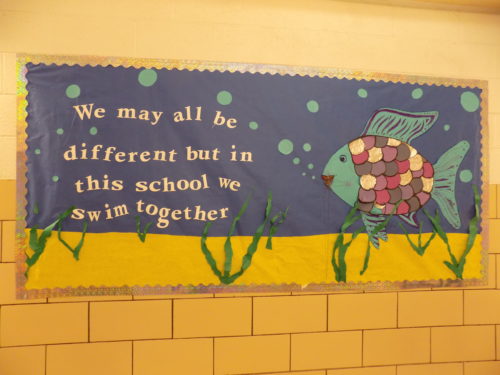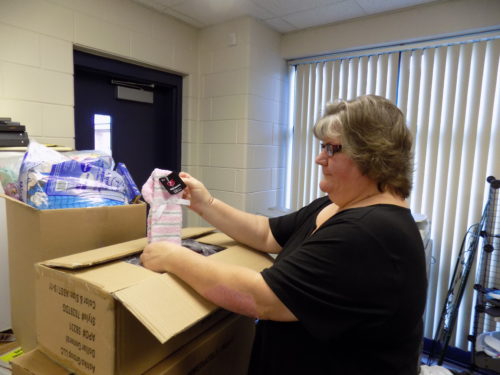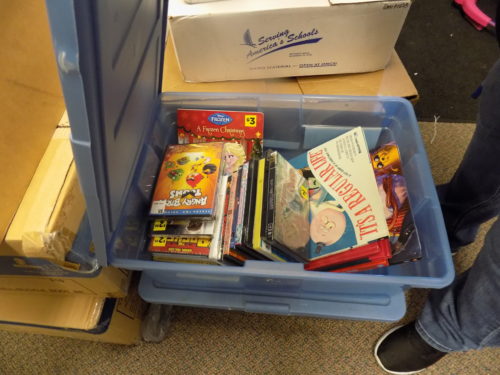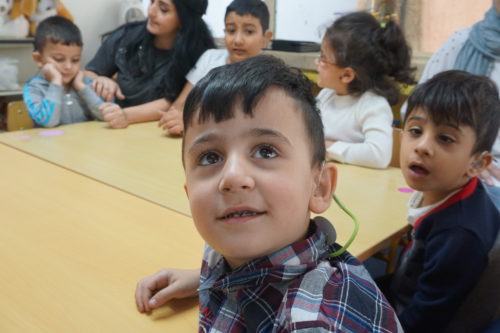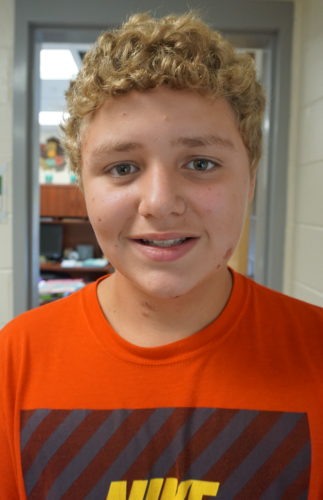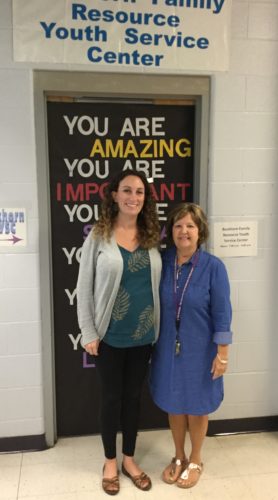As the largest elementary school in Knott County, Kentucky, Hindman Elementary School serves 609 students in grades kindergarten through eight.
Not only does the school have high enrollment, but it also prides itself on having test scores that are above the state average. According to our volunteer coordinator at the school, Shana, Hindman Elementary has a higher ratio of children who come from middle-class households compared to the rest of Knott County. Shana believes that these two factors are in direct correlation with one another.
Shana doesn’t let any obstacle stand in her way when it comes to making sure that vulnerable, underprivileged students at her school — including those enrolled in the Children Incorporated program — get the help they need.
Parents who are raising their children in middle-class households have completed high school or college and now work as teachers, nurses, county administrators or medical professionals in higher-paying jobs than their peers who weren’t able to get their high school diplomas or higher education degrees. And thanks to higher pay than minimum wage jobs offer, they can provide their children with the adequate resources they need to succeed in school — as Shana has seen firsthand at Hindman.
A school with kids in need
Unfortunately, even with higher percentages of students coming from middle-class backgrounds than other schools in Knott County, Shana says that many kids at Hindman are living in poverty. Nearly 75% of children attending Hindman receive free or reduced lunch through the National School Lunch Program.
Yet despite the challenges of serving underprivileged students with limited resources, Shana doesn’t let any obstacle stand in her way when it comes to making sure that vulnerable students at her school — including those enrolled in the Children Incorporated program — get the help they need.
Meeting Jean
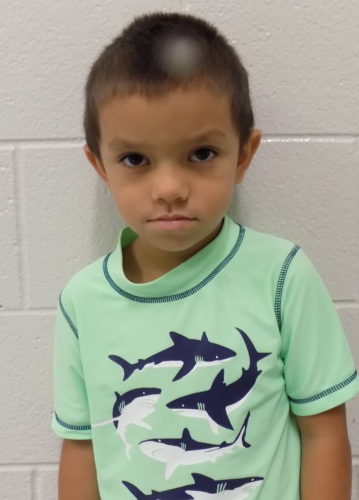
Thanks to Shana, children enrolled in our program at Hindman Elementary School are well cared for all year long.
On a recent visit to Knott County, Kentucky, our Director of U.S. Programs, Renée Kube, had the chance to see just how much Shana was willing to do for our sponsored and unsponsored kids.
“Shana is a dynamic coordinator who always goes above and beyond for her kids. Before our meeting at the school, she had arranged a visit to the home of a nice woman named Jean and her husband, John,” said Renée.
“Jean and John are the legal guardians of John’s six grandchildren, who are all currently sponsored through our program. When we arrived, Jean gave me a warm welcome into their trailer. She said they are retired, and starting all over again with his grandchildren was a big adjustment.”
Renée continued, “But the kids are so sweet. Jean is a tiny little woman with a ton of energy. She spoke of the grandchildren lovingly, telling funny stories about them — their pictures are displayed in places of pride on the television stand and the living room wall.”
“It was amazing to see firsthand how Shana’s efforts to make sure the children all had sponsors were making a huge difference for this family,” said Renée.
Visting Hindman
After their trip to Jean’s house, Shana and Renée had a chance to talk more about how Children Incorporated and the Family Resource Center at Hindman are helping children and families in Knott County.
It made Renée happy to know that children at this large elementary school have a caring person like Shana who is willing to go the extra mile every day to make sure they each have their individual needs met.
Shana told Renée that the things she struggles with most are providing basic needs assistance to children and accessing adequate healthcare for them. Thankfully, because of our donors and sponsors, many children at Hindman are getting shoes, clothes and school supplies regularly.
When it comes to healthcare, Shana brings the University of Kentucky Dental Van to the school and works with the Lions Club to obtain eyeglasses.
A wonderful time with Shana
Overall, Renée was very pleased with her visit to Hindman and the time she got to spend with Shana.
It pleased Renée — and comforted her — to know that children at this large elementary school have a caring person like Shana who is willing to go the extra mile every day to make sure they each have their individual needs met.
***
HOW DO I SPONSOR A CHILD IN KENTUCKY?
You can sponsor a child in Kentucky in one of two ways: call our office at 1-800-538-5381 and speak with one of our staff members, or email us at sponsorship@children-inc.org.

